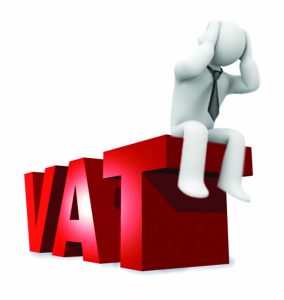Home News Finance Minister would like to “tax everything”
…to broaden tax base to ensure everyone is taxed
Guyanese would be paying tax on “everything” if it was solely up to Finance Minister Winston Jordan, who believes that “rich people” should pay Value Added Tax (VAT) on basic consumer items even if it means the poor cannot afford the higher cost.
Minister Winston Jordan, who believes that “rich people” should pay Value Added Tax (VAT) on basic consumer items even if it means the poor cannot afford the higher cost.
During a news conference on Monday, the Minister said if it was his decision, Guyanese would be paying taxes on everything but at reduced rates.
“Some people are telling us why don’t we just VAT everything at a lower rate and have programmes in place that would protect the poor. At a personal level – this is not the coalition level, but at a personal level, this would be my favoured approach,” he expressed.
Broader tax base
His personal desires aside, the Finance Minister said Government would continue along the lines of reducing taxes, but would implement measures in the coming years to ensure more people start paying taxes.
“Our Government would like to reduce tax rates over time, we’ve started this year and we’d like to continue this trend, providing that two things happen. One, we are in a position to broaden the base on which we are taxing and also make certain that the economy continue to grow. These aren’t conflicting priorities, they go in tandem. The economy grows once it can be helped by a tax regime that is supportive,” he explained.
Expanding on this vision, Jordan outlined that the broadening of the tax base included going after persons who were evading taxes.
“You know everybody says the self-employed is hard to tax: doctors, accountants, engineers, lawyers and so on and that is a significant group in Guyana. If we don’t have the wherewith to tax them and they are enjoying all the good public services that we do…then we have to tax me and you whose taxes come out at the PAYE (Pay as You Earn) level,” he explained.
The Minister posited if Government was to broaden the base to ensure everyone paid their fair share of taxes, then the burden on a select few would be reduced.
Jordan had stated back in March that he personally supported removing the income tax exemption enjoyed by the President, the Attorney General, the Auditor General, the Chancellor of the Judiciary and the Chief Justice.
“My personal view is that no one should be exempted from income tax… Obviously from somebody who is an economist, we would love to see everybody paying their (income) taxes… I don’t believe it to be a fair position for some to be paying taxes and others to be not paying taxes when we all would benefit from the same provision of social and other goods the Government would provide,” he had expressed.
Further, Jordan said Government would seek to broaden the tax base by going after persons who were cheating in their tax payments by doing multiple jobs, but only paying taxes on one.
Additionally, he alluded to the fact that there were some 32,000 active but unregistered businesses which were obviously evading taxes.
The Minister noted too that the Guyana Revenue Authority (GRA) needed strengthening to go after businesses in far-flung regions that easily get away with not paying taxes.
“GRA tends to focus heavily on Georgetown, but there are a significant amount of businesses going on outside of Georgetown,” he reminded.
Taxing the rich
The Minister further justified the Government’s rationale to remove VAT exemptions by indicating that rich people must pay taxes even if it meant the poor could not afford the taxed prices.
“Why should a rich person who can pay the VAT on chowmein not pay the VAT on chowmein? But you can’t say ‘rich people pay the VAT and poor people don’t pay the VAT’, so it is either VAT-able or exempt, and those who have the money they can buy chowmein, the poor person who can hardly see the price for bread will just watch chowmein,” the Minister explained.
He contended too that VAT exemptions on consumer items made no sense since many retailers do not pass down the benefits to their customers.
“People knowledgeable enough use the poor in this manner to get these items to become VAT free so that they can continue charging the same price as if VAT is still in place and so they are the beneficiaries not the poor people,” he highlighted as another reason behind the removal of the VAT exemptions.
Budget 2017 proposes a major shakeup in the tax regime, including a reduction in VAT from 16 per cent to 14 per cent and the addition of VAT to water and electricity.
Persons consuming water and electricity in excess of $1500 and $10,000 respectively will be charged 14 per cent on their total bill for each.
Additionally, Government removed the VAT exempted items; therefore, basic goods and services like healthcare would now attract the 14 per cent VAT. (Devina Samaroo)
 Minister Winston Jordan, who believes that “rich people” should pay Value Added Tax (VAT) on basic consumer items even if it means the poor cannot afford the higher cost.
Minister Winston Jordan, who believes that “rich people” should pay Value Added Tax (VAT) on basic consumer items even if it means the poor cannot afford the higher cost.









